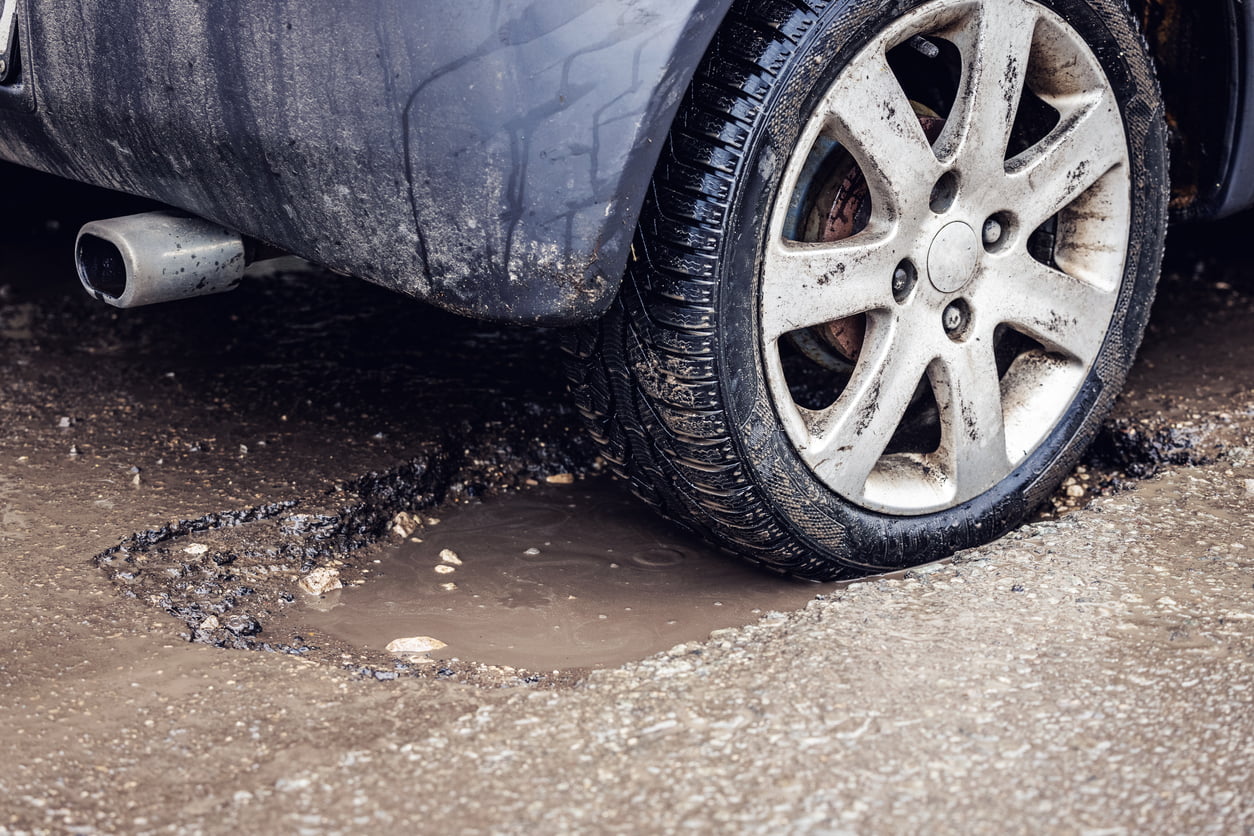It’s officially pothole season! This winter, cities have experienced some challenging weather in Ontario. From the major winter storm that shut down roads in January, to deep freezes and thaws—the weather has wreaked havoc on our city streets. Potholes are at the top of the list for causing driver frustration this time of year. As the start of pothole season approaches, let’s take a look at what causes them and what you should do if you spot some on your daily commute.
Origins of potholes
Potholes are created when water penetrates the top layer of asphalt through cracks in the road. After the moisture freezes and expands, sections of the pavement are forced upward. The weight of vehicles going over this section of road breaks the pavement and the asphalt is forced out. The constant fluctuations in temperature are one of the main causative factors. Potholes are more frequent in the spring, after the freeze and thaw action following winter.
Freeze-thaw events—where the temperature falls below freezing and then quickly rises above freezing—are the perfect recipe for a pothole. Mark Mills, a Road Operations Manager with the City of Toronto remarked, “It’s absolutely the best recipe for potholes, the rain and the snow and then we have plus five and minus ten the next day, it’s just the perfect storm for pothole season.” The fewer the number of freeze-thaw cycles, the fewer potholes we see. But a milder winter (like the one we have been experiencing) will have many more cycles. Therefore, it will result in the number of potholes we are already seeing this year.
Repairing potholes
Repairing potholes is an affordable way to maintain our roads. In 2022 so far, the number of potholes filled from January 1 to February 25 was at 11,985. Last year, crews were tasked with filling nearly double that amount for the same time period. Annually, the number filled has also declined: from 244,426 in 2018 to 120,420 in 2021. The COVID-19 pandemic is most likely one of the main reasons for the fall in cases as less people were commuting to work. As schools and businesses shifted to working online from home, fewer vehicles were seen on the road, causing less damage.

Courtesy of Toronto.ca
During winter months (when temperatures are low and pavement is covered with snow/ice) it is extremely difficult to work with hot asphalt. Because the hot asphalt cools very quickly, potholes are temporarily patched with cold mix asphalt to make the roads safe. More permanent repairs are performed with the hot asphalt when warmer weather conditions arrive. Ontario Premier John Tory has been quoted saying, “With the recent weather, we’re seeing potholes forming. City crews are out filling potholes, with nearly 10,000 potholes filled so far this year and over 3,200 this month. We’re preparing for pothole blitzes as soon as weather permits.” However, with fresh snowfall in the forecast, it might take a bit longer for crews to get to repairs.
Cost of repairing potholes
The City of Toronto has over 25 crews routinely monitoring road conditions and identifying areas that need repairs. Crews place asphalt and rake it into the pothole. Then they tamp down the asphalt and smooth it out until the road surface is improved. The job takes about 15-20 minutes. The municipality typically spends between $4 million and $5 million to address potholes every year. Each pothole costs about $25 to repair. It is estimated that crews are on track to do around 175,000 repairs this year, down from the all-time peak of around 275,000.
Reporting a pothole
Road users and business owners can help the repair process by reporting potholes when you see them. Crews will repair potholes within four days of it being reported.
To report potholes on City of Toronto roads or expressways, you can submit a service request by:
- Filling out an online form
- Calling 311 and providing them with the exact location of the pothole
- Tweeting 311, with exact location of the pothole
- Emailing [email protected]
Should you encounter a pothole, do your part and report it using one of the methods mentioned above. If you have experienced an accident with your vehicle involving a pothole, speak to one of our isure representatives today. We will explain how it can affect your car insurance rates, as well as help get you in touch with a reliable repair shop to assess the damage.




